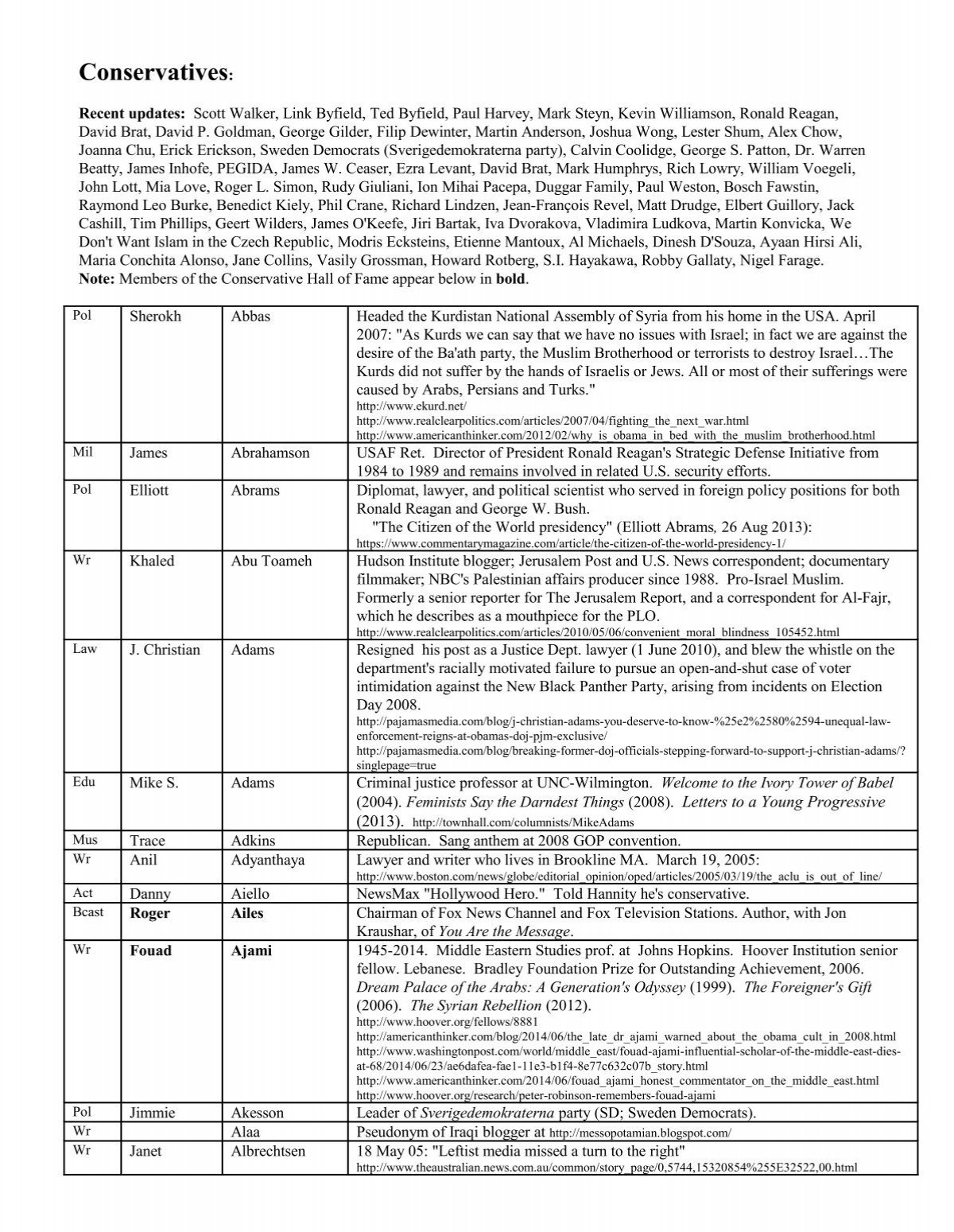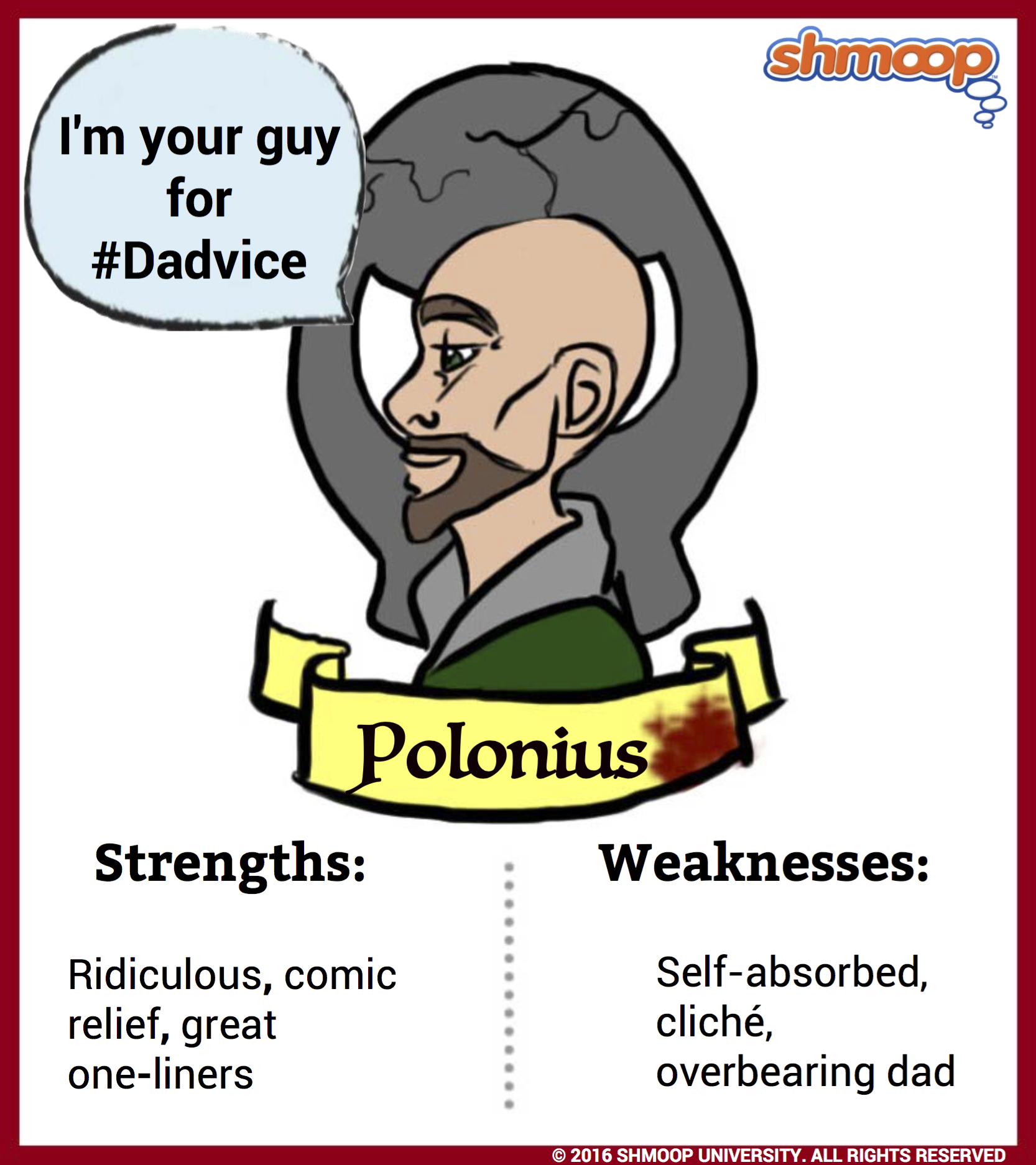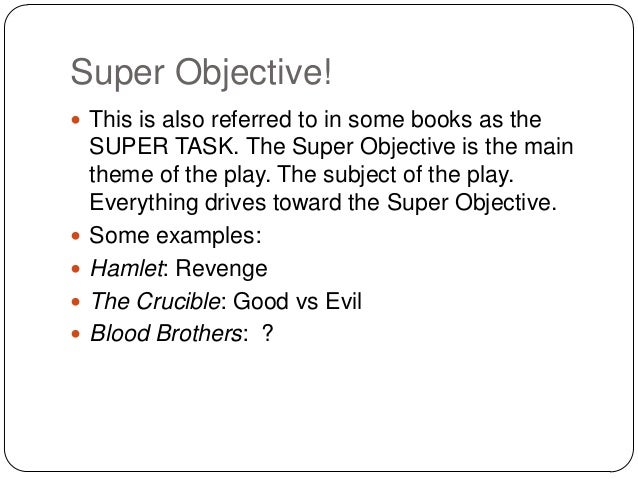- Super Objective Theatre
- Each Character's Super Objective In Hamlet 2
- Each Character 27s Super Objective In Hamlet Analysis




Super Objective Theatre
Ophelia’s frightful encounter with Hamlet shocks and upsets her. This seems to be the first instance of Hamlet acting mad in order to throw the courtiers at Elsinore off the scent of his plan—but given the passion of Hamlet and Ophelia’s relationship, Shakespeare also allows for the possibility that Hamlet really is unable to control himself when it comes to his love and lust for Ophelia. Each Shakespeare’s play name links to a range of resources about each play: Character summaries, plot outlines, example essays and famous quotes, soliloquies and monologues: All’s Well That Ends Well Antony and Cleopatra As You Like It The Comedy of Errors Coriolanus Cymbeline Hamlet Henry IV Part 1 Henry IV Part 2 Henry VIII Henry VI Part.
Each Character's Super Objective In Hamlet 2

Each Character 27s Super Objective In Hamlet Analysis
Hamlet's Soliloquies Reveal His Personality 'To be or not to bethat is the question (Hamlet, III, i, 64)' The previous quotation is the opening line from Hamlet's most famous soliloquy in which he is contemplating suicide as an end to all of his adversities. 'Hamlet's world is bleak and cold because almost no one and nothing can be trusted ('Folger Shakespeare Library').' Hamlet allows his words to exhibit his emotions through the soliloquies in the play. While dealing with the sudden loss of his father, Hamlet must now face the reality of his mother's (Gertrude) marriage to his uncle, Claudius, only two months after his father's death. Hamlet learns that Claudius murdered his father to become the king of Denmark. These dilemmas in…show more content…
Who would fardels bear, To grunt and sweat under a weary life, But that the dread of something after death... (III, i, 78-86)'
Hamlet is asking himself if it would be easier to endure a never-ending sleep, or to suffer; he asks who would tolerate the whips and scorns of time, the oppressor's wrong against us, the disrespect of proud men, the pain of rejected love, the proudness of authorities, and the advantage that the worst people take of the best when one could just release himself with a blade? Hamlet wonders who would carry this load, sweating and grunting under the burden of life if one did not have to dread of the after life. By Hamlet's in-depth thoughts of suicide, it is apparent that Hamlet is depressed and does not enjoy his life. 'Repetition of words such as calamity, scorns, oppressor, despised, dread and weary emphasize the mental trauma he is portraying ('Passage analysis of Hamlet').' 'Hamlet's speech contains obsessive concerns with suicide and death. His representation of himself as mentally unstable is an attempt to accomplish his super-objective of avoiding
Who would fardels bear, To grunt and sweat under a weary life, But that the dread of something after death... (III, i, 78-86)'
Hamlet is asking himself if it would be easier to endure a never-ending sleep, or to suffer; he asks who would tolerate the whips and scorns of time, the oppressor's wrong against us, the disrespect of proud men, the pain of rejected love, the proudness of authorities, and the advantage that the worst people take of the best when one could just release himself with a blade? Hamlet wonders who would carry this load, sweating and grunting under the burden of life if one did not have to dread of the after life. By Hamlet's in-depth thoughts of suicide, it is apparent that Hamlet is depressed and does not enjoy his life. 'Repetition of words such as calamity, scorns, oppressor, despised, dread and weary emphasize the mental trauma he is portraying ('Passage analysis of Hamlet').' 'Hamlet's speech contains obsessive concerns with suicide and death. His representation of himself as mentally unstable is an attempt to accomplish his super-objective of avoiding